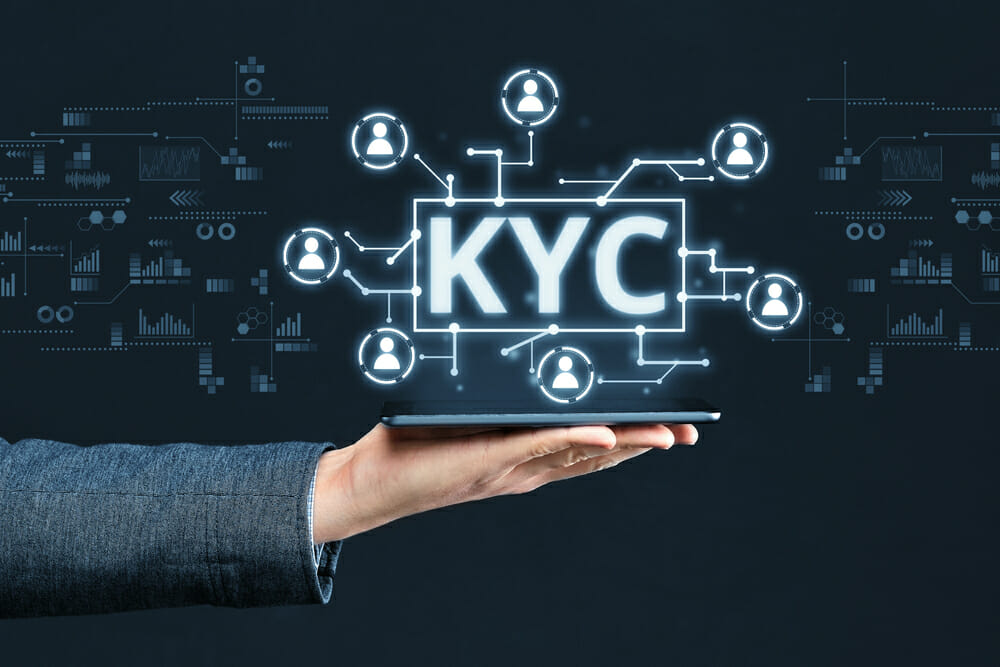Enhanced Due Diligence (EDD) is evolving rapidly in response to technological advancements and changing regulatory landscapes. Understanding future trends and preparing for upcoming changes is crucial for financial institutions...

How Does Edge Computing Assist with KYC?
How Does Edge Computing Assist with KYC?
As one of the most formidable technical features available on the market, edge computing gives KYC and AML solutions such as iComplyKYC a huge advantage when it comes to ensuring the privacy and security of customer data during identity verification and compliance operations.
At iComply, we know the importance of staying ahead of the pack when it comes to evolving tech and practices; that’s why our turnkey KYC products leverage the strengths of edge computing to provide you with one of the most comprehensive, private, and secure user experiences available.
Below, we’ll explore what edge computing is, the unique advantages it delivers to ensure data privacy and security compliance, as well as the benefits of partnering with a partner like iComply that utilizes this powerful technology.
What is Edge Computing?
Edge computing refers to IT software that amasses and assesses data while processing that data at the periphery, or “edge” of a network, staying as close to the source of origin as possible. Put more simplistically, while most data systems require identity verification to travel across networks from the origin point (i.e. your cellphone or computer) to the receiving database, edge computing performs the analysis right at the origin point. This on-site assessment not only gives you the information you need to move forward but also protects the interests of users on both sides of the equation. Essentially, you can securely verify a user’s identity while simultaneously giving them peace of mind of knowing their data stays on their device rather than moving into a potentially compromisable cloud transfer.
What Are the Benefits of Edge Computing?
One of the biggest advantages of working with edge-computing-based technology is that you’re able to get the information you need without compromising the privacy of your users beyond what is necessary. From an ethics standpoint, the real-time assessment of edge data is not only ideal, but it also allows you to stay compliant with evolving legislation while overcoming delays and addressing the common network errors that plague other kinds of systems. Rather than subjecting your customers to a verification process that can take in excess of 3-5 business days, edge computing can significantly expedite the process and allow both parties to move forward as soon as possible.
Key benefits of edge computing in data verification include:
- Increased speed
- Heightened security (data is stored offline, rendering it non-cloud vulnerable)
- Reduced IT/maintenance costs
- Data sovereignty and KYC/AML/CFT compliance
- Streamlined CDD and EDD processes
Edge Computing and KYC: the Perfect Fit
The strengths of edge computing make it ideal for use within KYC/CDD platforms thanks to its ability to quickly analyze data on native devices. At iComply, we’re proud to offer superior, end-to-end compliance tools powered by edge computing and backed by our partners at Microsoft and Deloitte.
We know that the future of KYC and anti-fraud compliance demands using the best technology and processes available. iComply operates with the highest data security and privacy measures in mind and we’re proud that our robust, modular suite of digital solutions has everything you need to move forward with confidence when it comes to global data security standards like GDPR, CCPA, PPIA, and more.
With edge computing technology and advanced algorithms integrated into each of our products, our software can be seamlessly integrated into existing platforms within a matter of minutes, and reduce the cost of running KYC protocols by up to 80%. From handling day-to-day due diligence to covering the advanced needs of PEPs and other high-risk customers, iComplyKYC has you covered from start to finish.
Book a demo with our team today to learn more about iComplyKYC and how our platform can be tailored to your specific needs and applications.
learn more
Is your AML compliance too expensive, time-consuming, or ineffective?
iComply enables financial services providers to reduce costs, risk, and complexity and improve staff capacity, effectiveness, and customer experience.
Request a demo today.
The Future of Enhanced Due Diligence in Regulatory Compliance
Challenges in Enhanced Due Diligence and How to Overcome Them
Enhanced Due Diligence (EDD) poses several challenges that can complicate compliance efforts. Understanding these challenges and implementing effective solutions is crucial for maintaining robust EDD processes. Common Challenges...
Best Practices for Implementing Enhanced Due Diligence
Implementing Enhanced Due Diligence (EDD) effectively requires strategic planning and adherence to best practices. Here are key strategies to enhance your compliance program with EDD: 1. Develop a Risk-Based Approach A risk-based...







